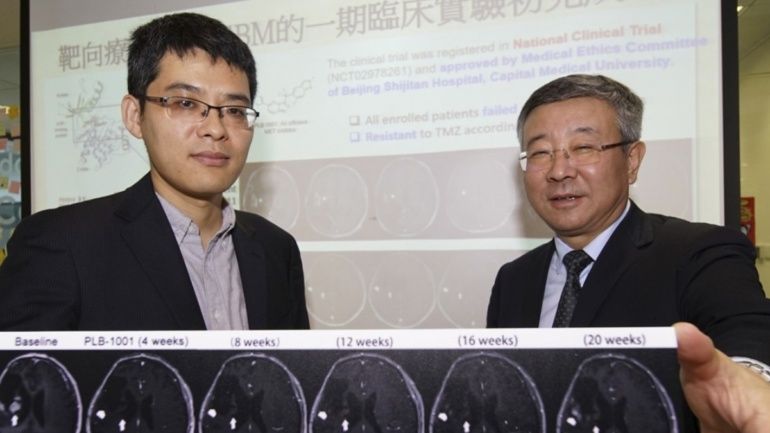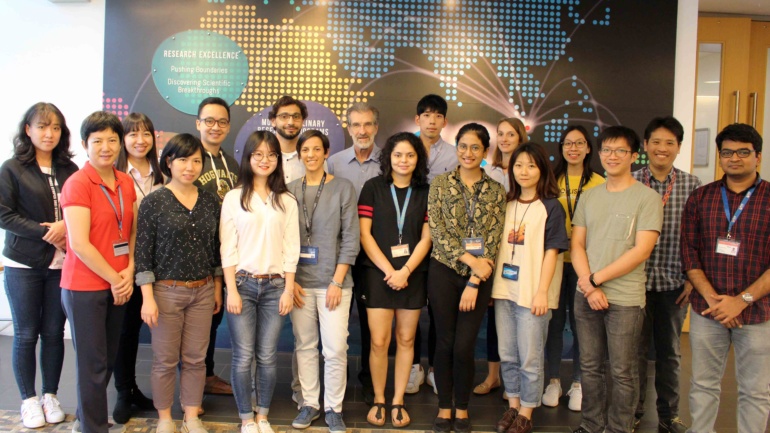Michael Wang, MD., Ph.D., member of AFCR Scientific Advisory Board
Excitement spread quickly after a June 14 report that a COVID-19 vaccine developed by Imperial College London in the U.K. will be tested in humans. What excites people is that the vaccine, which is based on a cutting-edge technology called self-amplifying RNA, could be produced so quickly and that hundreds of millions of doses would be distributed to hopefully protect vulnerable people shortly after its official approval.
Another piece of good news announced on the same day was the very positive human trial results of a COVID-19 vaccine made by Beijing-based Sinovac Biotech company. The preliminary study results showed that the vaccine is able to generate immune responses in patients with an excellent safety profile. Ninety percent of the people on trial produced neutralizing antibodies after two shots spread apart by two weeks and there were no severe reported side effects.
It is likely that the time of seeing the first approved vaccine is only a few months away. The three frontrunners among COVID-19 vaccine developers—the U.S. biotech Moderna, China’s CanSino Biologics and the U.K.’s University of Oxford and its partner AstraZeneca—believe that their best vaccine candidates will finish the final phase of trials and be ready for launch this September or October. The combined progress of these multiple vaccine candidates is so encouraging that even U.S. National Institute of Allergy and Infectious Diseases Director Dr. Anthony Fauci, who had been skeptical about a 2020 timeline, now believes it is possible “to have a vaccine that shows a degree of efficacy that would make it deployable.”
While the preliminary human trial data are promising, there is no guarantee for all people to get the protective vaccine shots by the end of 2020, as questions on many essential scientific, clinical and logistic processes are still not answered.
Among the questions are: After the vaccine shots, what type and how potent must the neutralizing antibodies produced in the human body be to effectively protect us against COVID-19 infection? It is widely believed that unless vaccines stimulate our body to produce enough potent neutralizing antibodies to specifically block the virus, they won’t be able to protect us from being infected. Although the two experimental vaccines made by Moderna and CanSino Biologics have both generated neutralizing antibodies in human bodies, no information has been disclosed by the two companies about the type, potency and specificity of the neutralizing antibodies for their effects to block COVID-19 infection.
Without data to surely demonstrate the protective function of neutralizing antibodies produced after vaccine injections, even if supply is available by September or October the vaccine may be used only as a therapeutic to treat already infected people with severe illness but not be used to protect healthy people against the COVID-19 infection. Unless people receive the protective vaccine, they are still susceptible to infection.
This is the possibility we wish not to happen. Hopefully the new vaccines, designed and developed with input of new research data, will be more effective for inducing preventive immunity in the bodies of healthy people in the near future.
Another issue is about the production capacity and deployment speed of the vaccines. Because of the limitation on the speed and scale of production and distribution, the vaccines won’t be ready for everyone who wants it immediately after they are approved by the U.S. Food and Drug Administration. Immunization priority would be given to severe patients and frontline medical care providers first. Most healthy people might need to wait until 2021 to get their preventive vaccine shots, if the effective vaccines are available on the market then.
Amid the uncertainty of preventive vaccine availability, the best and surest protection for us is to keep practicing the following 3Ws every day with personal discipline and perseverance:
- Wear – a face covering when you go out or are around others and social distancing is not possible;
- Watch – people around you and keep at least six-feet apart from them; and
- Wash – your hands frequently, and for at least 20 seconds with soap and water.
References:
- Imperial College’s Covid-19 vaccine research moves into human trials stage; https://www.indiatoday.in/world/story/imperial-college-s-covid-19-vaccine-research-moves-into-human-trials-stage-1690019-2020-06-17
- Sinovac Says Early Data Show its COVID-19 Vaccine Generated Immune Responses. https://www.statnews.com/2020/06/14/sinovac-early-data-COVID19-vaccine-generated-immune-responses/
- COVID-19: The Race to Develop a Vaccine. https://pharmaintelligence.informa.com/resources/product-content/COVID19-the-race-to-develop-a-vaccine
- The First COVID Vaccines May Not Prevent COVID Infection. https://www.bloomberg.com/news/articles/2020-06-15/the-first-COVID-vaccines-may-not-prevent-you-from-getting-COVID
- Moderna’s COVID-19 vaccine shows positive results, moves to larger studies. https://www.nbcnews.com/health/health-news/moderna-s-COVID-19-vaccine-shows-positive-results-moves-larger-n1209161
- A Human Neutralizing Antibody Targets the Receptor Binding Site of SARS-CoV-2. https://www.nature.com/articles/nrc.2017.109
- NC Will Ease Restrictions Starting Friday. Practice the Three W’s to Protect Against COVID-19. https://pulse.ncpolicywatch.org/2020/05/05/nc-will-ease-restrictions-starting-friday-practice-the-three-ws-to-protect-again-COVID-19/



